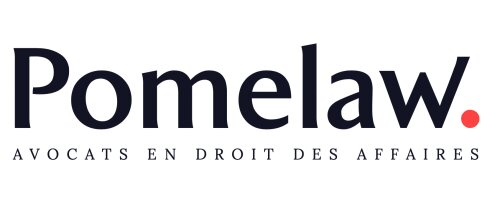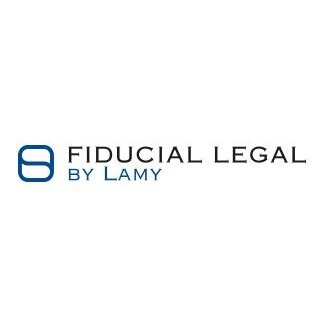Best Landlord & Tenant Lawyers in Lyon
Share your needs with us, get contacted by law firms.
Free. Takes 2 min.
Free Guide to Hiring a Real Estate Lawyer
List of the best lawyers in Lyon, France
About Landlord & Tenant Law in Lyon, France
The relationship between landlords and tenants in Lyon, like the rest of France, is primarily governed by the French Civil Code and the 1989 Tenancy Law ("Loi n° 89-462 du 6 juillet 1989"). This legislation regulates residential leases, establishing the rights and obligations of both parties. In Lyon, as in other parts of France, the law aims to balance tenant protection with landlord rights. The local housing authority, the Agence Départementale d'Information sur le Logement (ADIL), provides guidance and assistance to both tenants and landlords regarding tenancy regulations and disputes.
Why You May Need a Lawyer
Engaging a lawyer for landlord and tenant issues in Lyon can be crucial in several scenarios. You may require legal assistance if you encounter disputes concerning lease agreements, such as disagreements over rent amounts, security deposits, or repair responsibilities. Legal advice can also be essential if you face eviction or need to handle claims of property damage. French tenancy laws involve complex procedures and strict timelines; therefore, having expert guidance can ensure compliance and protect your rights. Additionally, consultations with a lawyer can be beneficial when drafting lease agreements to ensure they align with the legal requirements and protect your interests.
Local Laws Overview
The tenancy laws in Lyon reflect broader national regulations, emphasizing tenant protection. Key points include:
- Lease Agreements: Must be in writing and follow prescribed templates, ensuring clarity on terms and conditions.
- Security Deposits: Capped at one month's rent for unfurnished apartments and two months for furnished ones.
- Rent Control: Rent changes during the lease must adhere to specific legal limits and indexation rules.
- Eviction Procedures: Strict regulations protect tenants, especially vulnerable groups, ensuring due process and fair treatment.
- Repair Responsibilities: Clearly divided between landlords (senior repairs) and tenants (minor maintenance), with legal clarifications available for disputes.
- Notice Periods: Tenants typically must give one month's notice for rentals in zones considered as tight rental markets, like Lyon.
Frequently Asked Questions
What are my rights if my landlord wants to increase the rent?
In Lyon, rent increases during the lease term are regulated. Typically, rent can only be revised annually based on the Rent Reference Index (IRL). Any increase must be explicitly stated in your lease agreement.
How long does the eviction process take?
The eviction process can vary, but it generally involves several months, as tenants are protected by strict legal procedures. Landlords must follow these procedures, which often include obtaining a court order.
Can my landlord withhold my security deposit?
Your landlord can withhold your security deposit only for legitimate reasons, such as unpaid rent or property damages. Deductions must be itemized, and the remaining deposit should be returned within two months of your lease ending.
What should I do if my landlord refuses to make necessary repairs?
If your landlord neglects repair obligations, send them a formal request via registered letter. If the issue remains unresolved, you may contact ADIL for mediation or seek legal advice.
How much notice must I give to terminate my lease?
For rentals based in Lyon, typically one month's notice is required for property categorized in tense areas, but check your lease for specific terms. The notice must be given in writing, such as via a registered letter.
What constitutes as tenant abuse?
Tenant abuse can range from harassment, unlawful eviction attempts, to neglecting repair duties. If you experience this, document incidents and seek legal advice or contact ADIL.
Are there specific tenant rights in student housing?
Yes, student rentals often have defined, short-term contracts that may differ in notice requirements and lease terms. Check specific student accommodation regulations or seek legal advice for clarity.
Is there a specific way to resolve disputes with my landlord?
Mediation through bodies like ADIL is encouraged to resolve disputes amicably before pursuing legal action. If mediation fails, you can initiate legal proceedings with guidance from a lawyer.
What if I need to sublet my apartment?
Subletting typically needs landlord approval. Ensure subletting terms are included in your lease, and obtain written consent before proceeding. Violations can lead to lease termination.
How can I ensure my lease agreement is legal?
Ensure the lease follows the regulated templates and includes all mandatory information. Consulting a lawyer for review can provide added protection and peace of mind.
Additional Resources
Consider reaching out to or utilizing the following resources for additional support:
- ADIL (Agence Départementale d'Information sur le Logement): Provides free legal advice and mediation services.
- DILCRAH (Délégation interministérielle à la lutte contre le racisme, l'antisémitisme et la haine anti-LGBT): Supports against discrimination in housing.
- UNPI (Union Nationale des Propriétaires Immobiliers): Provides assistance and advocacy for property owners in disputes.
- Local Law Libraries: Offer access to legal resources and publications on tenant laws.
Next Steps
If you require legal assistance in landlord and tenant matters, begin by gathering all documentation related to your lease, correspondence with your landlord, and any relevant evidence. Next, consider contacting ADIL for an initial consultation to explore your options. If necessary, hire a specialized landlord-tenant lawyer to represent your interests; they can accompany you through negotiations, litigations, or court proceedings, ensuring your rights and responsibilities are clearly addressed and defended.
Lawzana helps you find the best lawyers and law firms in Lyon through a curated and pre-screened list of qualified legal professionals. Our platform offers rankings and detailed profiles of attorneys and law firms, allowing you to compare based on practice areas, including Landlord & Tenant, experience, and client feedback.
Each profile includes a description of the firm's areas of practice, client reviews, team members and partners, year of establishment, spoken languages, office locations, contact information, social media presence, and any published articles or resources. Most firms on our platform speak English and are experienced in both local and international legal matters.
Get a quote from top-rated law firms in Lyon, France — quickly, securely, and without unnecessary hassle.
Disclaimer:
The information provided on this page is for general informational purposes only and does not constitute legal advice. While we strive to ensure the accuracy and relevance of the content, legal information may change over time, and interpretations of the law can vary. You should always consult with a qualified legal professional for advice specific to your situation.
We disclaim all liability for actions taken or not taken based on the content of this page. If you believe any information is incorrect or outdated, please contact us, and we will review and update it where appropriate.













